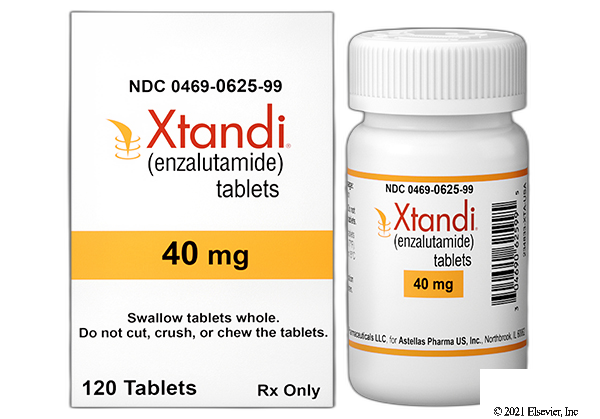April 23, 2024 (Tokyo) Astellas Pharmaceuticals announced that the European Commission (EC) has approved the label extension of XTANDI™ (Enzalutamide) as monotherapy or in combination with androgen deprivation therapy (ADT) to treat patients with Adult men with high-risk biochemical recurrence (BCR) non-metastatic hormone-sensitive prostate cancer (nmHSPC) who are not candidates for salvage radiation therapy.
The extended approval of XTANDI is based on results from the Phase 3 EMBARK trial of 1,068 men with high-risk BCR nmHSPC, in which prostate-specific antigen (PSA) levels, a biomarker that can indicate prostate cancer activity, doubled in 2019. 9 months or less. The study showed that patients who received XTANDI plus leuprolide were 57.6% less likely to have their cancer spread or die than those who received leuprolide alone. Participants who received XTANDI alone had a 36.9% risk reduction.
Xtandi (Enzalutamide) is an androgen receptor signaling inhibitor. Enzalutamide is a standard treatment with regulatory approval in one or more countries around the world for the treatment of patients with metastatic hormone-sensitive prostate cancer (mHSPC), metastatic castration-resistant prostate cancer (mCRPC), Men with non-metastatic castration-resistant prostate cancer (nmCRPC) and non-metastatic hormone-sensitive prostate cancer (nmHSPC) with high risk of biochemical recurrence (BCR).
The European Association of Urology (EAU) revised its treatment guidelines in April 2024 to recommend the use of enzalutamide with or without ADT in men with high-risk BCR nmHSPC after radiation therapy or surgery. To date, there is no consensus on the standard of care for men with this condition.
In non-metastatic hormone (or castration)-sensitive prostate cancer (nmHSPC or nmCSPC), evidence that the cancer has spread to distant parts of the body (metastasis) cannot be detected by conventional radiological methods (CT/MRI), and the cancer remains Responding to medications or surgical treatments that lower testosterone levels. An estimated 20-40% of men who undergo radical treatment for prostate cancer, including radical prostatectomy, radiation therapy, or both, will develop BCR within 10 years. Approximately nine in 10 men with high-risk BCR will develop metastatic disease, and one in three will die from metastatic prostate cancer.















Leave a reply